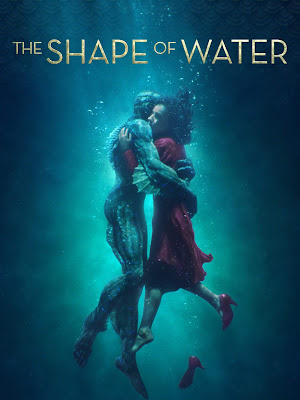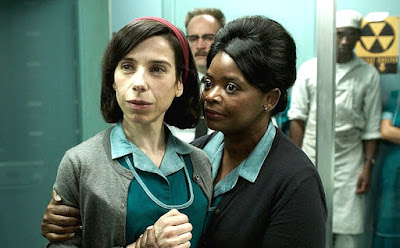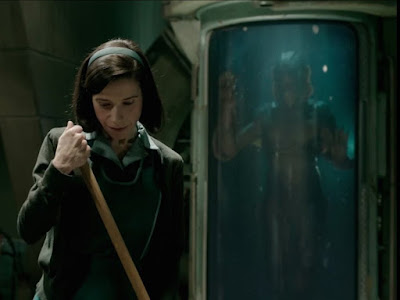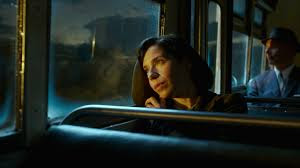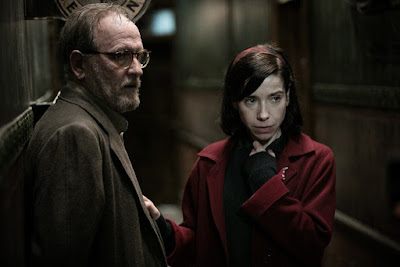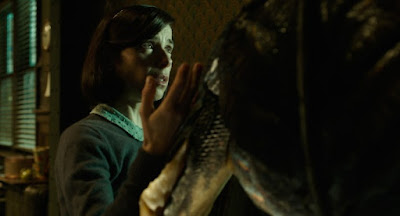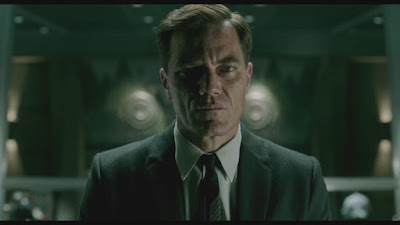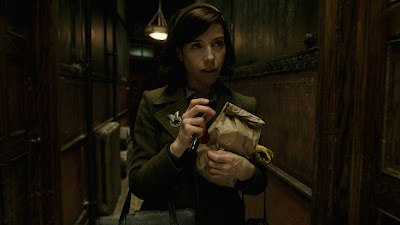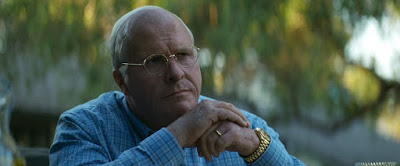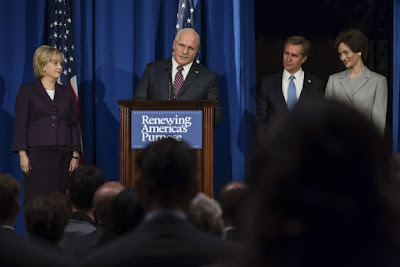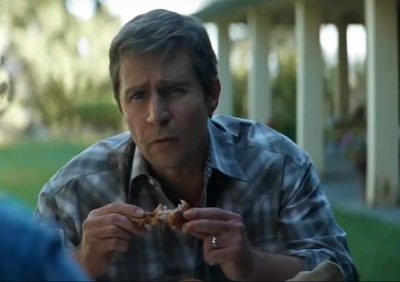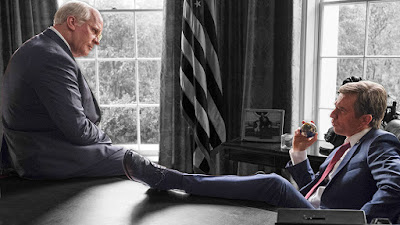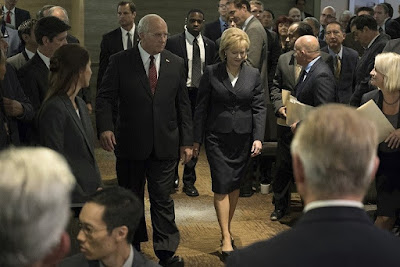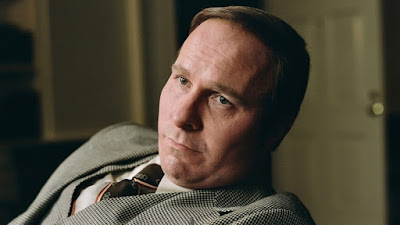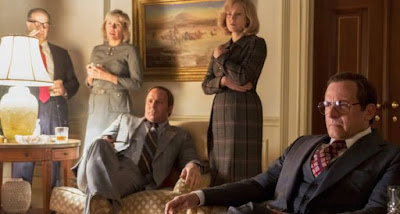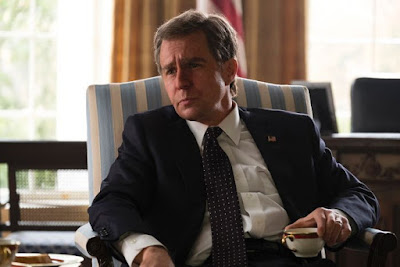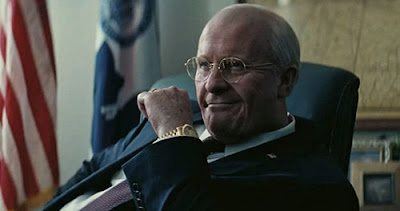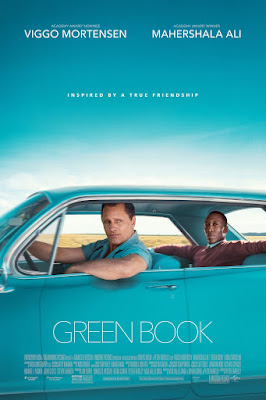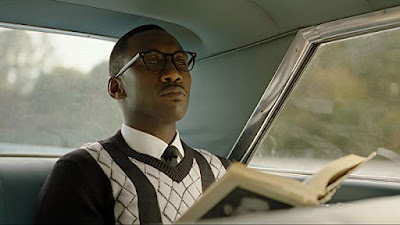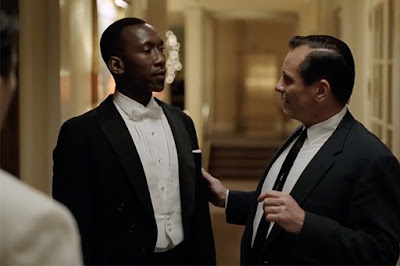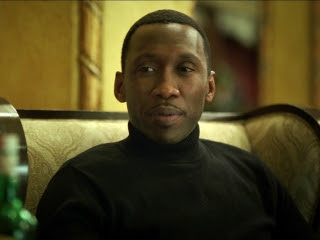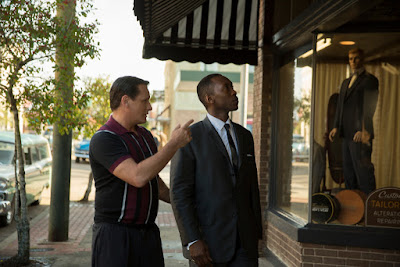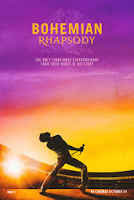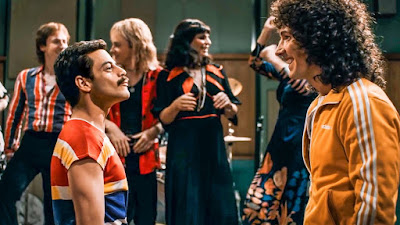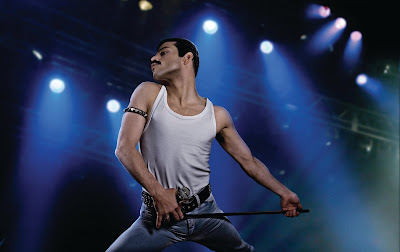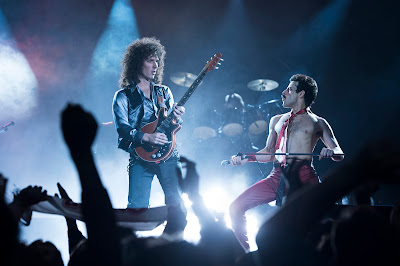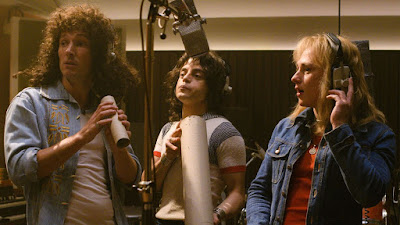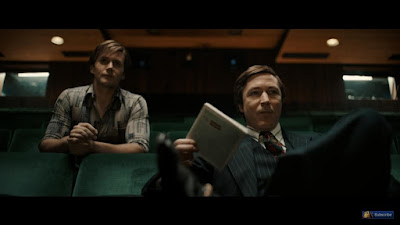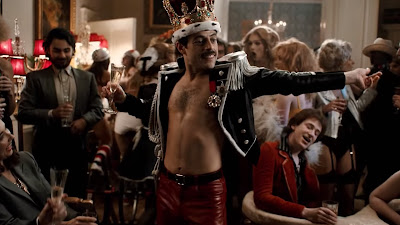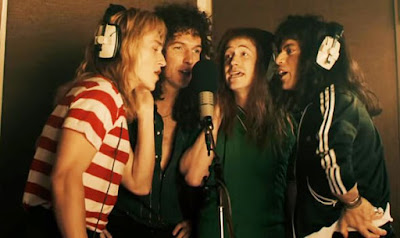Very few directors can be considered true visionary filmmakers. A visionary filmmaker is someone, who carries a specific style behind their filmmaking that essentially feels like a stamp on all the films they do. Directors who fit the profile of being visionary directors are Steven Spielberg, James Cameron, Peter Jackson, Christopher Nolan, and Tim Burton. With
The Shape Of Water, Guillermo Del Toro officially cements his status as being one himself with a visual flare that's unique, and proves to be solid yet emotional storytelling. With his newest effort, Del Toro manages to create a bizarre Sci-Fi romance disguised as an art house film, that possesses his trademark visual flare while making the story appealing enough for mainstream audiences, particularly Oscar voters who awarded the film with wins for Best Picture and a long-awaited Best Director win for Del Toro. Not only is
The Shape Of Water beautifully made, it stands as being Del Toro's best film next to 2006's
Pans Labyrinth. The film has an impressive combination of strong acting performances, stellar cinematography, art-set decoration, costume design, an effective score, and a fantastical element to the story that makes it feel both real and captivating. The end result is an emotionally absorbing story that puts Guillermo Del Toro at his best visually, while matching his visual wonder with strong storytelling and a fantastic performance from Sally Hawkins.
The story for
The Shape Of Water takes place in the 1960's era with a female cleaner named Elisa (Played by Sally Hawkins) discovering a secret containment area where an amphibious humanoid creature is being held captive. Whereas the officials holding the creature have sinister intentions for it, the female cleaner becomes drawn to it. The best way to describe
The Shape Of Water is that it's both wild, brave, and imaginative. The films bizarre yet striking love story is presented in a way that makes it come across as feeling intelligent, emotionally charged, and extremely well-acted with great performances from its talented cast. On a visual level, the film essentially allows Del Toro the opportunity to continue pushing the boundaries of him being visually distinctive from other filmmakers with him letting his creative vision run free. One cannot argue that it's an extraordinary vision as he manages to bring something fresh to the story, making it visually breathtaking while engrossing the audience with the films main theme regarding loneliness. The film at times feels like a tribute to the old classical style of Hollywood filmmaking with the way Del Toro helms the film with its stunning cinematography right down to its brilliant score by Alexandre Desplat. For some,
The Shape Of Water may come across as being too out there for them to enjoy nor feel comfortable with the concept of a woman falling in love with a fish (They seem to have no problem embracing love stories with similar plots, such as
Edward Scissorshand's or
Beauty And The Beast Animated Or Live-Action), but for others the film is not only entertaining but shows the free reign that a director with a firm grip on his craft, is allowed to have over the story. The film essentially supplies audiences with the answer of whether the director of
Blade ll, Hellboy 1,2, Pans Labyrinth, and
Pacific Rim could evolve into creating a more serious type of drama with his insane visual appeal, with the final answer ultimately being yes. Not only can Del Toro provide the story with imagination, but he can also supply it with tons of heart and emotion.

What elevates the film outside of its strong visual look, is the incredible acting performances from its talented cast with Sally Hawkins performance being both the heart and soul of the film. Hawkins performance as a mute Elisa is significant because of the fact that she played the character without any word of dialogue, using complete sign language as well as her emotions to make the audience connect with her character. She's terrific here and creates a character that's likable and sympathetic. The same goes for Octavia Spencer in a strong supporting role as Elisa's co-worker and friend Zelda, who serves as her interpreter. Richard Jenkins also shines as Elisa's closeted neighbor and close friend Giles, whose a struggling advertising illustrator. With the strong performances of the actors and actresses playing Elisa's supportive and close friends, Michael Shannon does great with playing the films main antagonist Richard Strickland, a United States Colonel in charge of the project to study the creature referred to as the "asset." Whereas all the human actors churn out strong to incredible performances, the real impressive work outside of Hawkins stunning portrayal of Elisa is Doug Jones work as the creature referred to as the "asset." With the help of Del Toro providing uncredited vocal effects combined with Jones mannerisms and character movements, the two succeed in bringing the amphibious creature to life making him both mesmerizing to look at and believable. The films cast and performances go hand in hand with its visual style to bring it's story to life in a way that makes it feel real, believable, and engrossing as the actors all make you feel something for the characters as well as becoming concerned about the well-being of the creature.
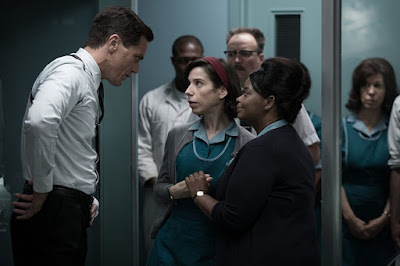
In terms of the films directing, Guillermo Del Toro does an excellent job of meshing fantasy/horror together with romance that makes the audience emotionally invested in both the story as well as the characters. Given that the main characters never speak a word to each other, Del Toro through sheer brilliance and creativity manages to make it work in a way that's hard-hitting. With the creature, he manages to give it a mysterious yet majestical feel that makes it hard for the audience to take their eyes off the screen. Guillermo also succeeds with setting up the mood of the story, giving the film an authentic 1960's feel to it that's stunning both in terms of set and costume design, while allowing his actors the freedom to bring their characters to life. The films editing is skillful and works in regards to keeping the story functional and moving with the story structure remaining coherent with not one moment feeling unnecessarily added to the story. In regards to the creatures design, Del Toro puts a great amount of detail into the look of the creature as he makes it appear both realistic and inventive (Though it shares a similar resemblance to the creature from Hellboy). As a filmmaker, Guillermo is one that knows his craft and puts it on full display with his passion as well as excitement for telling this story. While a love story between a woman and a beast is in no way an original concept, Del Toro takes the familiar and makes it feel fresh and new again with his stylistic approach to filmmaking.
The films screenplay also by Guillermo Del Toro and Vanessa Taylor succeeds in taking the whole
Frankenstein concept, as well as
Beauty And The Beast's and presenting a different form of unconventional romance that often feels like it's paying homage to those stories. While it can be argued that Del Toro isn't really going anywhere new with the story as all the best elements of it are borrowed from past classics, he presents those ideas in a way that's flashy and heartfelt with the selecting of the films 1960's time period to be an ideal setting for the story due to the concept of society at the time being constantly afraid of something that's different. Toro and Taylor present their themes of loneliness, love, inability to speak to each other, racism, the fearing of things we don't understand in a way that makes them feel poetic and told in a fairy tale like fashion. The inner-species romantic aspect of the plot, is appropriately handled without it coming across as feeling forced with an ultimate message that says love can transcend differences between extant humanoid species. The screenplay allows a fair amount of time for developing all the main characters, giving the story a novel like feel as everyone has scenes and moments that define their characters and allows the audience to get inside their head. What the writers do with the story that makes it noble is that through the characters of Elisa and the creature, they provide a voice to the voiceless by creating a striking romance between the main characters, that feels suttle rather than generic. One of the films best moments is when Elisa and the amphibian creature share a dance together with Elisa singing a black and white song through the use of sign language. It is through moments like these and others such as them floating together in an apartment that's flooded, and Elisa explaining to Giles in Sign language why she cares so much for the amphibian man, where the sheer power of the story takes full effect, as well as Del Toro's desire to create a unique fairy tale being put on full display.

In the end,
The Shape Of Water is not a film for everyone as the unusual nature of its romance will be too weird for some audiences to invest in. For those who appreciate a directors artistic vision, they will find much to appreciate and become fascinated with Del Toro's work here. It doesn't top his work on
Pans Labyrinth but it's the film that demanded he finally nab a well-deserved Best Director Oscar win. He doesn't create a conventional monster film here, but rather a complexed and personal character story regarding two lonely individuals, who form a special bond that can't be explained. The film is bold, creative, and carries with it a distinctive visual touch that makes it stand out from the majority of films released today. As the film demonstrates, Del Toro is expanding his grasp over his craft in terms of becoming one of the greatest visionary filmmakers to ever grace the big screen. Here he gives audiences an emotionally absorbing spectacle, that's all heart and charm with a genuine feeling of imagination thrown into the mix. It's beautifully acted, masterfully shot, and told with pure devotion to its concept which showcases brilliance and imagination. It may not be a film for everyone but its intentions to entertain, as well as captivate its audience cannot be denied.
The Shape Of Water is one of the more unusual Best Picture Winners in recent memory, but it also happens to be one of the most daring.
Final Verdict: For Guillermo Del Toro fans as well as those who enjoy films made with the sole intention of being striking pieces of art,
The Shape Of Water is a must see.
